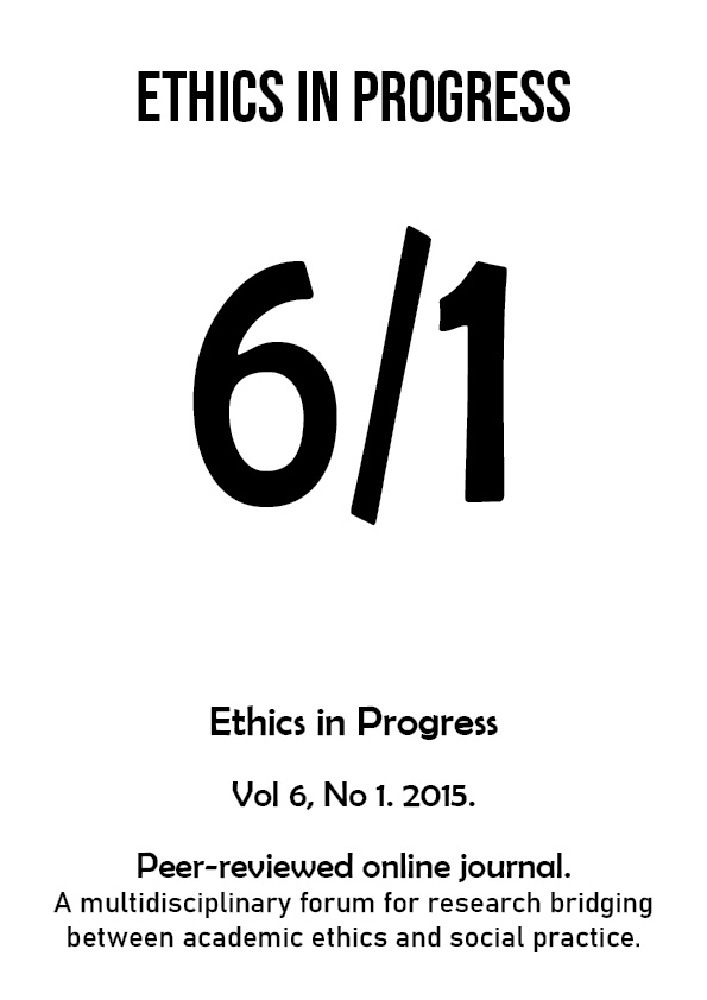Abstract
Many prominent bioethicists have recently raised the question of the possibility of moral status enhancement. In this paper I discuss the arguments advanced by Nicholas Agar for the possible existence of the postpersons. I argue that in spite of the many limitations and shortcomings of Agar’s account, there are no conclusive reasons to rule out the possibility of moral status enhancement. However, if post-persons are as they are described by Agar, the fact of their possibility is less interesting and ethically relevant than it might seem. Most importantly, the account of post-persons given by Agar is rather an outcome of some implausible assumptions. I propose that Agar conflates the ethical with the scientific and dismisses the importance of phenomenology in framing our ethical outlook. Also, he seems to follow the assumption made by many utilitarian ethicists that such features as sentience and cognitive capacities have some universal relevance. This accounts for the delusion that we can view our moral attitudes from the point of view of the Universe.
References
Agar, N. 2013. "Why Is It Possible to Enhance Moral Status and Why Doing So Is Wrong?." Journal of Medical Ethics 39: 67-74.
Agar, N. 2014. Truly Human Enhancement: A Philosophical Defense of Limits. Cambridge, Mass.: The MIT Press.
Annas, G. 2002. "Cell Division". Boston Globe. Retrieved from: http://www.geneticsandsociety.org/article.php?id=164
Fukuyama, F. 2002. Our Posthuman Future. Consequences of the Biotechnology Revolution. London: Profile Books.
Buchanan, A. 2009. "Moral Status and Human Enhancement." Philosophy & Public Affairs 37(4): 346-381.
Buchanan, A. 2011. Beyond Humanity. Oxford: Oxford University Press. DeGrazia, D. 2012. "Genetic Enhancement, Post-Persons and Moral Status: A Reply to Buchanan." Journal of Medical Ethics 38: 135-139.
Douglas, T. 2013a. "The Harms of Status Enhancement Could Be Compensated Or Outweighed: A Response to Agar." Journal of Medical Ethics 39: 75-76.
Douglas, T. 2013b. "Human Enhancement and Supra-Personal Moral Status." Philosophical Studies162: 473-497.
Frankfurt, H. 1971. "Freedom of the Will and the Concept of a Person." Journal of Philosophy 68: 5-20.
Hauskeller, M. 2013. "The Moral Status of Post-Persons". Journal of Medical Ethics 39: 76-77.
McMahan, J. 2002. The Ethics of Killing. Oxford: Oxford University Press.
McMahan, J. 2009. "Cognitive Disability and Cognitive Enhancement." Metaphilosophy 40: 582-605.
Persson, I. 2013. "Is Agar Biased Against «Post-Persons»? Journal of Medical Ethics 39: 77-78.
Savulescu, J. 2009. "The Human Prejudice and the Moral Status of Enhanced Beings: What Do We Owe the Gods?" In J. Savulescu & N. Bostrom (eds.), Human Enhancement. Oxford: Oxford University Press: 211-247.
Sparrow, J. R. 2013. "The Perils of Post-Persons." Journal of Medical Ethics 39: 80-81.
Wasserman, D. 2013. "Devoured by Our Own Children: The Possibility and Peril of Moral Status Enhancement." Journal of Medical Ethics 39: 78-79.
Williams, B. 1985. Ethics and the Limits of Philosophy. Cambridge: Harvard University Press.
Williams, B. 2006. "The Human Prejudice." In idem, Philosophy As a Humanistic Discipline..Princeton: Princeton University Press: 135-152.
Bühler, Ch. 1929. Das Seelenleben des Jugendlichen.Versuch einer Analyse und Theorie der psychischen Pubertät. Jena: Fischer Verlag.
Garz, D. 1999. "»Also die Annahme, daß die Welt gerecht ist, das wäre sehr irrational«. Urteil, Handeln und die Moral des Alltagslebens". In D.
Garz, F. Oser, & W. Althof (Hg.), Moralisches Urteil und Handeln. Hamburg: Reclam: 377–406.
Oevermann, U. 2001. "Das Verstehen des Fremden als Scheideweg hermeneutischer Methoden in den Erfahrungswissenschaften". Zeitschrift für Qualitative Bildungs-, Beratungs- und Sozialforschung 1: 21–64.




